Here's extension method to convert DataTable to object list:
public static class Extensions
{
public static List<T> ToList<T>(this DataTable table) where T : new()
{
IList<PropertyInfo> properties = typeof(T).GetProperties().ToList();
List<T> result = new List<T>();
foreach (var row in table.Rows)
{
var item = CreateItemFromRow<T>((DataRow)row, properties);
result.Add(item);
}
return result;
}
private static T CreateItemFromRow<T>(DataRow row, IList<PropertyInfo> properties) where T : new()
{
T item = new T();
foreach (var property in properties)
{
if (property.PropertyType == typeof(System.DayOfWeek))
{
DayOfWeek day = (DayOfWeek)Enum.Parse(typeof(DayOfWeek), row[property.Name].ToString());
property.SetValue(item,day,null);
}
else
{
if(row[property.Name] == DBNull.Value)
property.SetValue(item, null, null);
else
{
if (Nullable.GetUnderlyingType(property.PropertyType) != null)
{
//nullable
object convertedValue = null;
try
{
convertedValue = System.Convert.ChangeType(row[property.Name], Nullable.GetUnderlyingType(property.PropertyType));
}
catch (Exception ex)
{
}
property.SetValue(item, convertedValue, null);
}
else
property.SetValue(item, row[property.Name], null);
}
}
}
return item;
}
}
usage:
List<Employee> lst = ds.Tables[0].ToList<Employee>();
@itay.b
CODE EXPLAINED:
We first read all the property names from the class T using reflection
then we iterate through all the rows in datatable and create new object of T,
then we set the properties of the newly created object using reflection.
The property values are picked from the row's matching column cell.
PS: class property name and table column names must be same
